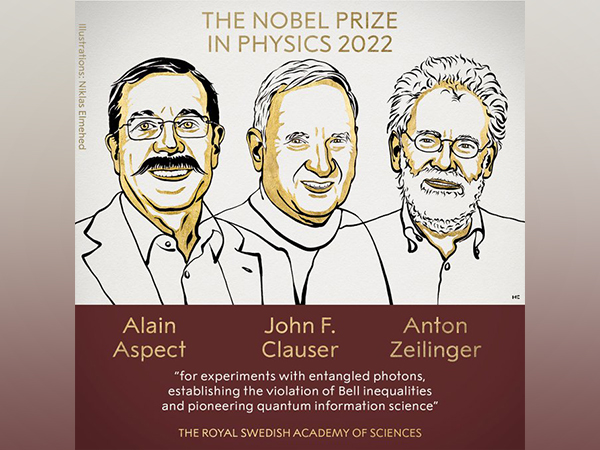Science News Roundup: Space station's Italian commander, with lookalike Barbie, tells girls about science in orbit; Nobel physics prize goes to sleuths of 'spooky' quantum science and more

Following is a summary of current science news briefs.
Space station's Italian commander, with lookalike Barbie, tells girls about science in orbit
The first European female commander on the International Space Station, Italian astronaut Samantha Cristoforetti, answered young girls' questions -- accompanied by a lookalike Barbie doll. Cristoforetti recently took time to describe some of the experiments conducted aboard the ISS, as well as answer questions from five girls 8 to 11 years old from across Europe. She and her spacesuit-clad Barbie floated in zero gravity, as she spoke.
Nobel physics prize goes to sleuths of 'spooky' quantum science
Scientists Alain Aspect, John Clauser and Anton Zeilinger won the 2022 Nobel Prize in Physics for experiments in quantum mechanics that laid the groundwork for rapidly-developing new applications in computing and cryptography. "Their results have cleared the way for new technology based upon quantum information," the Royal Swedish Academy of Sciences said of the laureates -- Aspect, who is French, Clauser, an American and Zeilinger, an Austrian.
Rocket builder Firefly nails crucial milestone with first mission success
Rocket builder Firefly Aerospace reached orbit for the first time this weekend, hitting a crucial milestone that kick-starts its launch business and opens new funding opportunities for growth, the company's chief executive said on Monday. Firefly, based near Austin, Texas, launched its two-stage Alpha rocket in the pre-dawn hours of Saturday from a U.S. Space Force base in Southern California, sending its first payloads into orbit after an initial attempt over a year ago failed mid-flight.
Lowly wax worm's saliva may boost fight against plastic pollution
Two substances in the saliva of wax worms - moth larvae that eat wax made by bees to build honeycombs - readily break down a common type of plastic, researchers said on Tuesday, in a potential advance in the global fight against plastic pollution.
The researchers said the two enzymes identified in the caterpillar saliva were found to rapidly and at room temperature degrade polyethylene, the world's most widely used plastic and a major contributor to an environmental crisis extending from ocean trenches to mountaintops.










